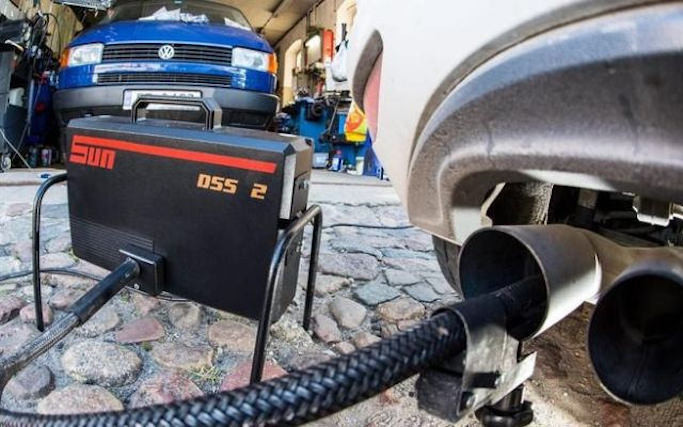Car manufacturers distance themselves from animal and human testing of diesel fumes
After it was revealed that experiments involving monkeys and humans breathing in exhaust fumes had been conducted at the Uni clinic in Aachen 2016, which were funded by European Research Group of Environment and Health in the Transport Sector (EUGT)--a body funded by Volkswagen, Daimler and BMW--VW boss Matthias Müller apologised. He said, according to Spiegel, that “the methods used by the EUGT in the USA were wrong, they were unethical and revolting. They had nothing to do with interest representation or scientific enlightenment.”
However, VW had to admit that some employees knew about these tests, according to ARD. Daimler Benz and BMW also condemned the tests and asked for investigations.
Ireland abortion referendum
The Irish Taoiseach confirmed that a referendum on reforming the strict anti-abortion law would be held by the end of May. The anti-abortion is set in the Irish Constitution since 1983 and recognises the equal rights to life of a foetus and the mother during pregnancy, according to The Guardian. The Fine Gael-led minority coalition also decided to ask the electorate to allow parliament to draw up a new law to permit abortions in Irish hospitals up to 12 weeks into pregnancy. Currently, the strict abortion laws force many women to go abroad to terminate their pregnancies.

EU27 Brexit guidelines, leaked documents, Lords debate
On Monday 29 January, the General Affairs Council adopted the new guidelines for the Brexit negotiations on the transition period. Michel Barnier, the EU’s Brexit negotiator, said: “The EU position is very clear: the transition will last for 21 months until the 31st of December 2020. The whole EU acquis will continue to apply to the UK, as well as the jurisdiction of the EU Court of Justice.” However, the United Kingdom should no longer participate in any bodies set up by those agreements. This would make the UK effectively a rule-taker, giving it even less say than Norway.
Leaked DExEU documents meanwhile show the negative impact on the British economy in the three scenarios. Buzzfeed reports that: “Under a comprehensive free trade agreement with the EU, UK growth would be 5% lower over the next 15 years compared to current forecasts, according to the analysis. The “no deal” scenario, which would see the UK revert to World Trade Organization (WTO) rules, would reduce growth by 8% over that period. The softest Brexit option of continued single-market access through membership of the European Economic Area would, in the longer term, still lower growth by 2%.” The analysis further shows that all sectors of the economy and every region would be negatively impacted, and that there is a risk the financial centre could be severely eroded.
The House of Lords is set to start debating the EU withdrawal bill today and tomorrow. Its constitutional committee has criticized the bill for “undermining legal certainty” and recommended major changes, according to The Guardian. The paper states that “Peers will have to decide how far they want to go towards challenging the bill when amendments are debated at committee and report stage in the coming weeks.” Some of the demands for change are: “a role for parliament in the event of no deal; a vote for the UK parliament on the final deal ahead of the EU parliament; a time-limited transitional period on current terms; enhanced protection for EU-derived rights; further limitations on Henry VIII powers; and removing the government’s fixed Brexit day.”
